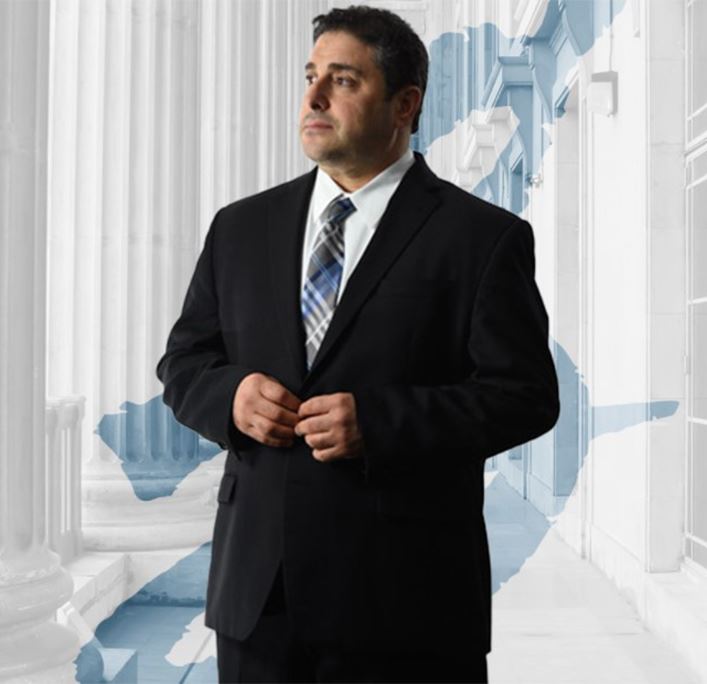
Long Island Wage Garnishment Attorney
Protecting Clients from Garnishments and Banking Restraints in New York
Perhaps one of the most frustrating and frightening things these days is going to your bank account and learning it has been restrained by a third party or receiving your paycheck and learning your wages are being garnished by a creditor, the Marshal or Sheriff.
If you just received notice of a banking restraint or garnishment, The Law Office of Gregory A. Goodman, P.C. can help you explore your legal rights and options. Time is of the essence, and we will work expeditiously to get your banking restraint lifted and your garnishment vacated. Our law firm has successfully lifted banking restraints and vacated executions and garnishments for a number of clients. In fact, we have cases whereby we have successfully filed affirmative actions against creditors and third-party collectors for violating our client’s rights and the law.
Worried about your livelihood? Call our Long Island wage garnishment attorney at (800) 242-3740 or reach out through our contact page to find out more.
For those facing issues related to consumer debt protection and defense, our team is well-versed in handling such cases. We also specialize in credit card debt defense and can provide the necessary legal support to challenge unfair practices.
If your situation involves medical bills, our medical debt defense services can help you navigate through the complexities of medical billing and collections. Additionally, we offer assistance in vacating judgments to help you regain control of your financial situation.
Our expertise extends to No-Fault (PIP) insurance law, ensuring that you receive the benefits you are entitled to under your insurance policy. We also handle cases involving consumer protection and fraud, safeguarding your rights against deceptive practices.
Understanding your rights under the Fair Debt Collection Practices Act is crucial, and our team is here to provide you with the necessary guidance. If you are experiencing harassment from debt collectors, our collection abuse services can help put an end to the abuse and protect your rights.
What Is Wage Garnishment?
Wage garnishment is a type of banking restraint that occurs when the court orders that an employer withhold portions of your paycheck and send it directly to the creditor until your debt is resolved. Some debts are more likely to incur wage garnishment than others. For example, student loans, child support, and consumer debts could all potentially lead to wage garnishment.
There are laws to protect you from excessive wage garnishment and there are legal options for lessening the effect or vacating the garnishment entirely. It is important to understand that your employer will be notified if there is an order for wage garnishment and in some cases, creditors may take more than legally allowed. You may pursue legal action with the help of an attorney.

Our Satisfied Clients
We genuinely care about our clients and will do everything we can to ensure their satisfaction
-
“Very professional”
Very professional, very respectful and kind, and got the job done for me.- Barwhale G. -
“Gregory handled a Consumer Credit dispute for me within weeks!”
Gregory handled a Consumer Credit dispute for me within weeks! He's very efficient, responsive, and professional. I would definitely recommend him for helping you resolve your consumer credit disputes!- Bee. G -
“Gregory Goodman is very professional and consistent.”
Gregory Goodman is very professional and consistent, he provides in detail all options and is very thorough with his work, I highly recommend. He helped with a situation a few months ago and since then all has been very well! Thank you Gregory Goodman!- Davin S. -
“Greg is a very trustworthy, knowledgeable attorney”
Greg is handling a litigation matter for me. He is efficient, is moving my case right along and treating me with the upmost respect. He keeps me advised of all phases of the case and I believe he will fight for the best recovery that I can possibly receive. Not many attorneys are this conscientious.- Client -
“Goodman is a person of human quality, responsible and honest. I recommend it.”
You who are reading, will be in good hands. Goodman is a person of human quality, responsible and honest. I recommend it.- Melissa F. -
“Greg will thoroughly, effectively and patiently represent you for all your personal injury needs. Cannot recommend him enough.”
“Greg will thoroughly, effectively and patiently represent you for all your personal injury needs. Cannot recommend him enough.”- Steven D. -
“Best money I ever spent!”
Excellent lawyer! I live out of state and needed a lawyer in NY I could trust. He made no promises, always upfront about the possible outcomes. He always worked very hard to get me the results I needed. He came through every time! He understood my financial circumstances and worked with me so I could hire him within my budget. Best money I ever spent! He’s honest and trustworthy, and I’m grateful for his help in more than one legal matter. I can’t say enough great things about Greg.- Ted R. -
“I highly recommend Mr. Goodman.”
I endorse this lawyer. Gregory A. Goodman is an excellent trial attorney and is very well researched in what he does. Mr. Goodman will never come to a trial or a motion conference unless he is fully prepared and knows everything that is going on with the file. He is a fierce advocate and is excellent at what he does. I highly recommend Mr. Goodman.- Jason T.
